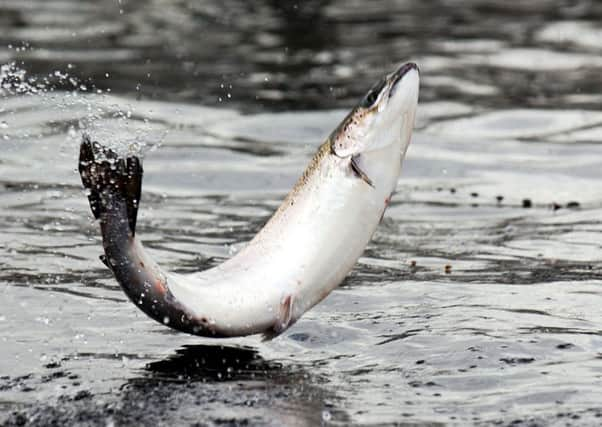Calls for fish farm to be moved from Highland loch


Members of Salmon & Trout Conservation Scotland (S&TCS) are calling for the fish farm to be removed from Loch Ewe, where it has been for 30 years, to combat infestations of a deadly parasite.
They say the government must also introduce tighter regulation and controls on sea lice on fish farms to safeguard wild salmon and sea trout.
Advertisement
Hide AdAdvertisement
Hide AdSea lice feed on the skin and mucus of the host fish, causing injury and sometimes death. They are naturally occurring but are found at increased densities on caged fish.
The move from S&TCS is part of a campaign aimed at restoring populations of sea trout in Loch Maree, once considered the finest sea trout fishery in the country.
Sea trout catches in Loch Maree plummeted in 1988, a year after commercial salmon farming began in Loch Ewe. The two lochs are connected via the River Ewe.
S&TCS says a report by Dr Andrew Walker, a former senior scientist for the Scottish Government, backs up their claims. It concludes that “the introduction of salmon farming in Loch Ewe close to the River Ewe’s estuary played a prominent part in the changes in sea trout stock dynamics in the River Ewe system, leading to the collapse of the angling fishery in Loch Maree”.
The campaigners believe sea trout numbers will recover naturally over time if the farm, owned by aquaculture giant Marine Harvest, is taken away.
“With the benefit of hindsight, no-one – including Marine Harvest – would have located an open-cage salmon farm in such an enclosed sea loch as Loch Ewe,” said Andrew Graham-Stewart, director of S&TCS.
“The consequences for wild sea trout and the world-renowned Loch Maree fishery have been catastrophic.”
Hughie Campbell Adamson, S&TCS chairman, added: “We fully accept that salmon farming is a very important industry for Scotland. What we are asking for is the relocation of those farms which are simply in the wrong place or are incapable of controlling sea lice and thus are causing significant damage to wild salmon and sea trout stocks.”
Advertisement
Hide AdAdvertisement
Hide AdBut bosses at the Norwegian-owned firm, Scotland’s biggest salmon farmer, have rejected the claims. They say declines in wild fish are likely due to climate change and over-fishing.
“We feel that this is not a balanced view because the decline of large sea trout in that area predates the development of salmon farming,” said Ben Hadfield, managing director of Marine Harvest Scotland.
He added: “Loch Ewe is one of our smaller farms and an isolated area where we have little or no challenge from sea lice.”
He said Marine Harvest had discussed “a proactive relocation of the site” that would safeguard jobs and the business but S&TCS was “unwilling” to accept the proposal.
He insists the company remains open to working with the group on sea lice, seabed impacts and the health of farmed and wild fish.
He added: “But we can’t have them a self-appointed, judge, jury and executioner, especially with the very low levels of sea lice associated with this location.”